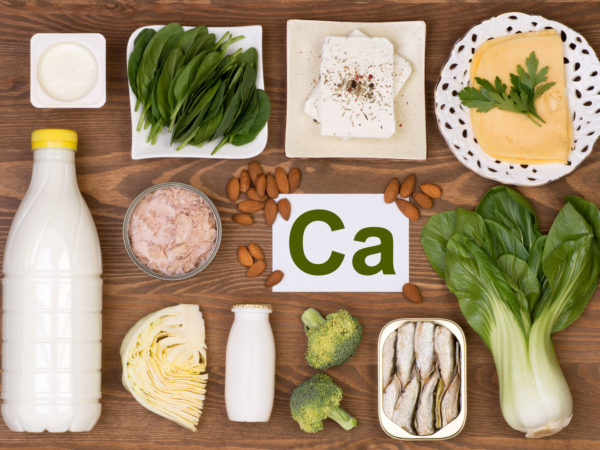How Much Calcium?
I’ve read that people in other countries don’t get as much calcium as we do in the U.S. but have lower rates of osteoporosis. What does this mean? Should we be consuming less calcium?
Andrew Weil, M.D. | June 24, 2019

In a number of countries, including Japan, India, and Peru, the average daily calcium intake is very low, only 300 mg. That’s considerably less than the daily total of 1,000 mg recommended for adults between the ages of 19 and 50 and 1,200 mg recommended for those over 50 in the U.S., yet the incidence of bone fractures in these countries reportedly has been very low. The difference has been attributed to the level of physical activity people perform as well as the amount of incident sunlight in those countries. However, it is also believed that osteoporosis has been under-diagnosed and under-treated in Asia, which may explain why this condition appears to occur so much less frequently in these populations than in the U.S. and other western nations. That may be changing. The International Osteoporosis Foundation (IOF) projects that by 2050 about 50 percent of all osteoporotic hip fractures will occur in Asia. Worldwide, the IOF reports that average dietary calcium intake among adults varies from a low of 175 mg per day in Nepal to a high of 1,233 mg daily in Iceland. According to the IOF the average intake in China and India the world’s most populous countries is only 338 mg daily and 429 mg daily, respectively.
Low levels of vitamin D are also widely prevalent in Asians, regardless of age, possibly due to inadequate vitamin D intake in the diet and lack of food fortification. (In the U.S. some dairy products, orange juice, soy milk and cereals are fortified with D.) Other contributing factors to the projected increases in osteoporosis in Asia are believed to be urbanization and decreased sun exposure.
For the record, I recommend taking a calcium supplement if you are not eating calcium-fortified foods or at least three servings of dairy per day. I also recommend that postmenopausal women and those with a family history of osteoporosis supplement with no more than 500 to 700 mg of calcium (as calcium citrate) in two divided doses taken with meals for a daily total of 1,000-1,200 mg from all sources, including diet.
If you’re concerned about osteoporosis, be aware that a sedentary lifestyle promotes both bone and muscle loss. Weight-bearing activities such as walking, jogging and weight training help to maintain bone density, and muscle use promotes bone building. The lifestyle measures listed below can help prevent bone loss as you get older (after 30 both men and women begin losing bone mass slowly; this accelerates for women after menopause):Exercise: Perform both weight-bearing exercise (walking, jogging or anything else you can do on your feet) and strength training for muscles.
Vitamin D: Get tested to determine your blood level of vitamin D; it should range from 30.0 to 74.0 nanograms of 25-hydroxy vitamin D per milliliter (ng/mL) of blood. If it’s very low, you may need to supplement with high doses until it comes up. Otherwise, I recommend 2,000 IU of vitamin D3 daily. The ultraviolet B rays of the sun trigger your skin to make vitamin D (provided you’re not wearing sunscreen). We don’t get much D in our diets, so if you don’t get regular sun exposure, it is necessary to supplement with this vitamin.
Vitamin K: I recommend daily intakes of 120 mcg for men, 90 mcg for women. Low intake has been linked to low bone density. Broccoli, Brussels sprouts, dark green lettuce, collard greens and kale all contain vitamin K.
Watch your protein intake. Too much can promote calcium loss from bones.
Vitamin A: Take only in the form of beta carotene, as part of a mixed carotenoid product. Preformed vitamin A (identified on vitamin labels as “retinol” or “vitamin a palmitate”) can weaken bones.
Cut back on caffeine: too much can promote calcium loss.
Andrew Weil, M.D.
Source:
International Osteoporosis Foundation. 2013. Asia-Pacific regional audit: epidemiology, costs & burden of osteoporosis in 2013. www.iofbonehealth.org.










